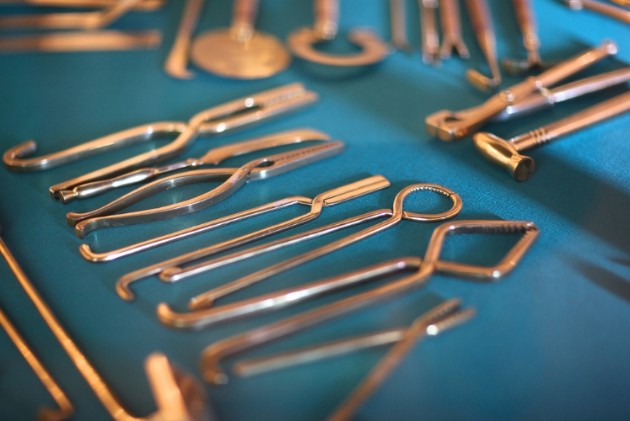לצפייה בתמונה
לחץ כאן
לצפייה בתמונה
If you know someone who's afraid of going to the doctor, you might suggest a visit to the New Orleans Museum of Medicine. There's a good chance they'll faint there – but they'll likely leave with a newfound appreciation for modern medicine, which is much gentler than the practices of the past.
Last week, a piece in the 'Washington Post' described the museum as something out of a nightmare. Visitors find themselves surrounded by 'knives and saws for amputating limbs, old syringes, pointed spears, and a device called a 'tonsil guillotine' (!)...' According to the guide, visitors have been known to faint from time to time.
Medicine in the past was known not only for its terrifying tools but also for its bizarre theories. Many doctors believed that the best way to heal most diseases was to make their patients bleed as much as possible. Most, of course, bled to death, much to the surprise of their doctors. Some even tried to treat hemophilia – a condition where even small cuts are life-threatening due to a lack of clotting factors – by inducing more bleeding! Or consider the theory that believed women who studied or read too much would become infertile or suffer paralysis: doctors genuinely believed that parents who sent their daughters to advanced schools were risking their health...
Doctors weren't the only ones involved in medical care back then. Even in the late 19th century, pharmacists took on many roles we now associate with licensed doctors: diagnosing diseases, visiting patients, prescribing medications, giving injections, pulling teeth, and making patients bleed to heal them. (Which, as mentioned, mainly resulted in patient death). They also concocted most of the medicines they sold.
Most medical treatments of the past aimed to alleviate symptoms rather than cure the disease. Thus, one might find opium, heroin, and whiskey in the medicine cabinet of the past. Even children weren't spared from such treatments. One of the most popular products in any pharmacy was a mixture of wine and opium intended for teething babies.
Looking back at the history of medicine, says museum director Liz Sherman, it's astounding to consider the resilience of the human race. Lead-tipped bottles, mercury injections, arsenic pills, leeches for bleeding, and hard drugs sold as medicine... and yet people survived. "It's truly amazing," she says.
.Use quotes in order to search for an exact term. For example: "Family Purity", "Rabbi Zamir Cohen" and so on
 (Illustration photo: shutterstock)
(Illustration photo: shutterstock)